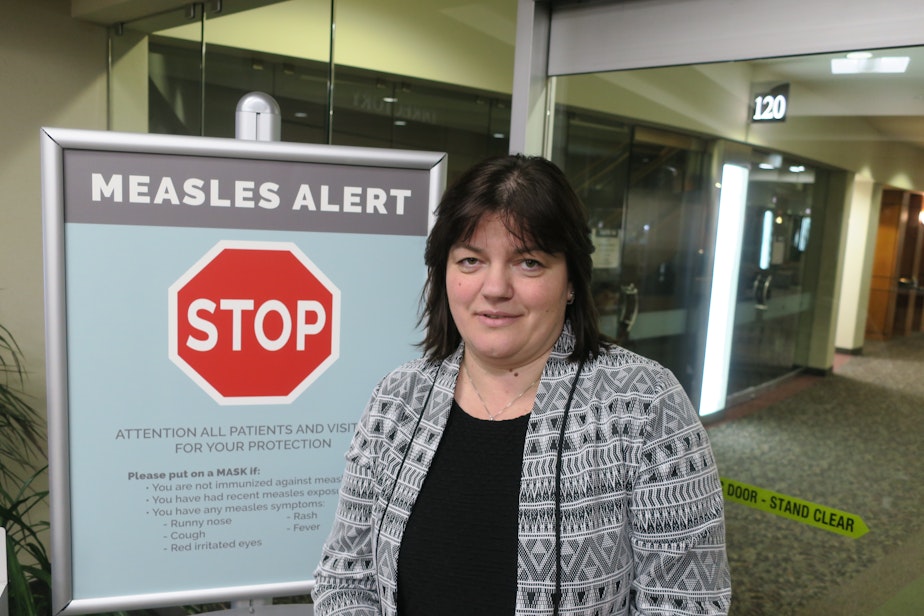Russian social media fuels vaccine anxiety as measles spreads in Washington state

VANCOUVER, WASHINGTON — A recent measles outbreak here is being linked to a strain from Eastern Europe.
At the same time, Russian language anti-vaccine messages are also crossing international borders, spreading fear of vaccines into the Vancouver-Portland area through social media.
Dr. Tetyana Odarich, who helped found a clinic in Happy Valley, Oregon, south of Vancouver, says most of her Russian and Ukrainian patients are vaccine hesitant, making them vulnerable to measles and other diseases.
Dr. Odarich said the reasons why many in the Russian and Ukrainian communities in this area give for not vaccinating their kids sound like what you’d hear from vaccine hesitant parents in Seattle or Vashon Island: fear about side effects, and conspiracy theories about the government and the medical establishment.
But there’s also a difference: Anti-vaccine anxiety in these communities is also fueled by Russian language sources via social media.
Dr. Odarich pulled up a video news report on her phone about a 3-year-old boy from Ukraine who supposedly can no longer walk after being vaccinated.
Sponsored
Russian troll farms have spread misinformation about vaccines, targeting English-speakers in the United States, according to a recent study of Twitter activity in the run-up to the 2016 election.
The video about the 3-year-old boy came to Dr. Odarich by way of the clinic's medical assistant, Tatyana Voloshko, whose friend in Russia shared it with her.
The video had been posted to a Russian social media website called Classmates, where it has been viewed nearly 5 million times. The post on Classmates also includes links to an anti-vaxxer website that appears to be Russian. The video itself is also available on YouTube.
Although she works in a doctor’s office, Voloshko said that she herself questions vaccines. ”It’s so hard for people to find out what is the right information, what is the truth,” she said.
That feeling of uncertainty is easy to understand. This newscast looks credible, even if there’s no medical evidence to support the fear that vaccines cause paralysis.
Sponsored
For her part, Voloshko has vaccinated her own kids for measles, and she believes vaccines are necessary. But news stories like the one in the video make her worry.
Here in Clark County, the vaccination rate for kids starting school is around 75 percent, which is far below what’s needed for herd immunity. The rate is lower at some schools.
More than 60 people were infected with measles in the area. Most were not vaccinated. Public health officials won’t release any information about individuals due to privacy concerns.
Dr. Alan Melnick, head of Clark County Public Health, stressed vaccine hesitancy is not confined to a single community in the county, and that it’s important not to stigmatize Russian-speaking communities that are already reluctant to trust doctors.
So far, he said, Clark County has had measles cases “in four school districts, in multiple schools, so we're not talking about one community being affected by this.” Public health is reaching out to all communities here, in a variety of languages, including Russian.
Sponsored
But Melnick said competing with all the misinformation online is difficult for the health officials and doctors. After all, social media – like a virus — does not stop at international borders.




